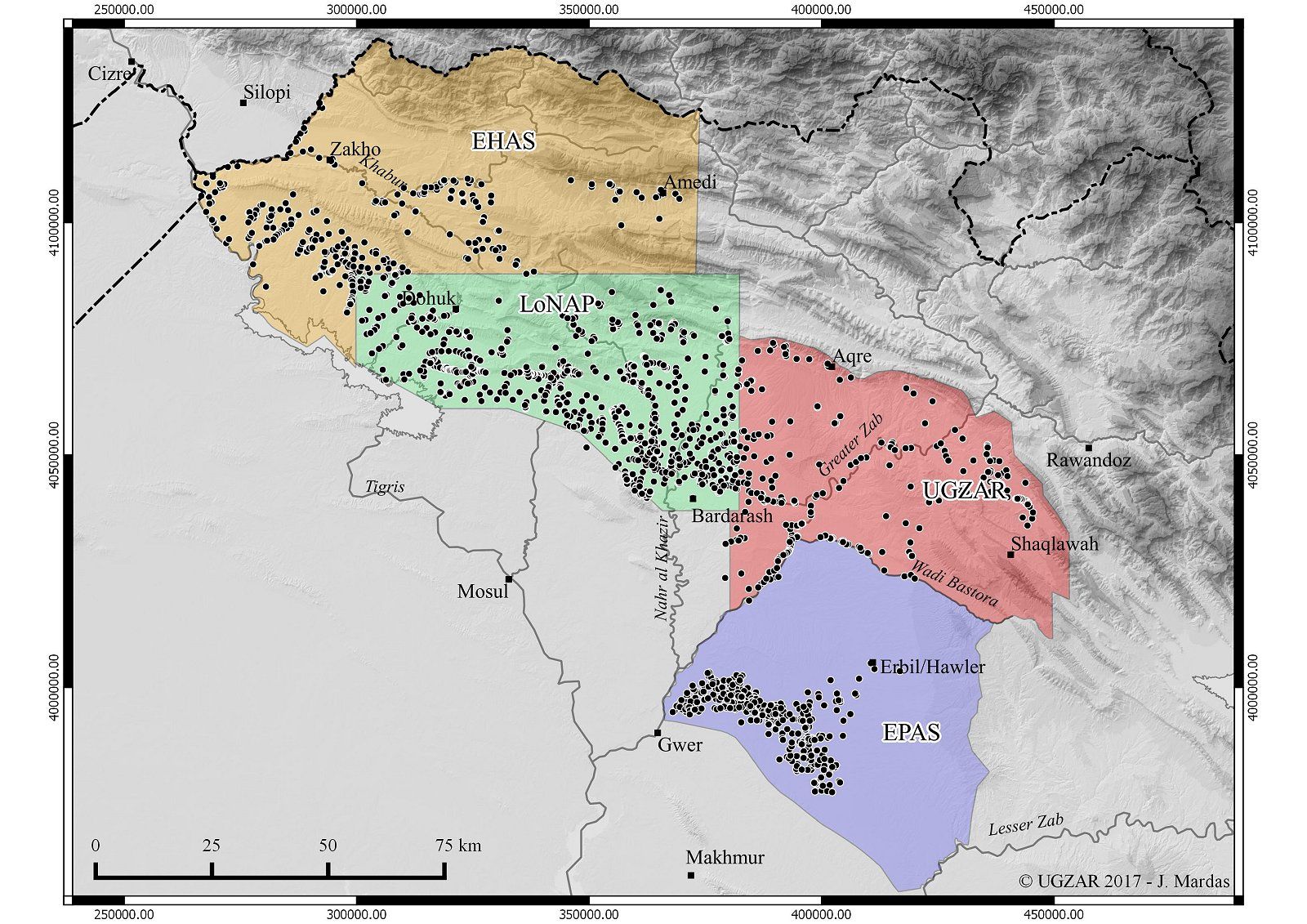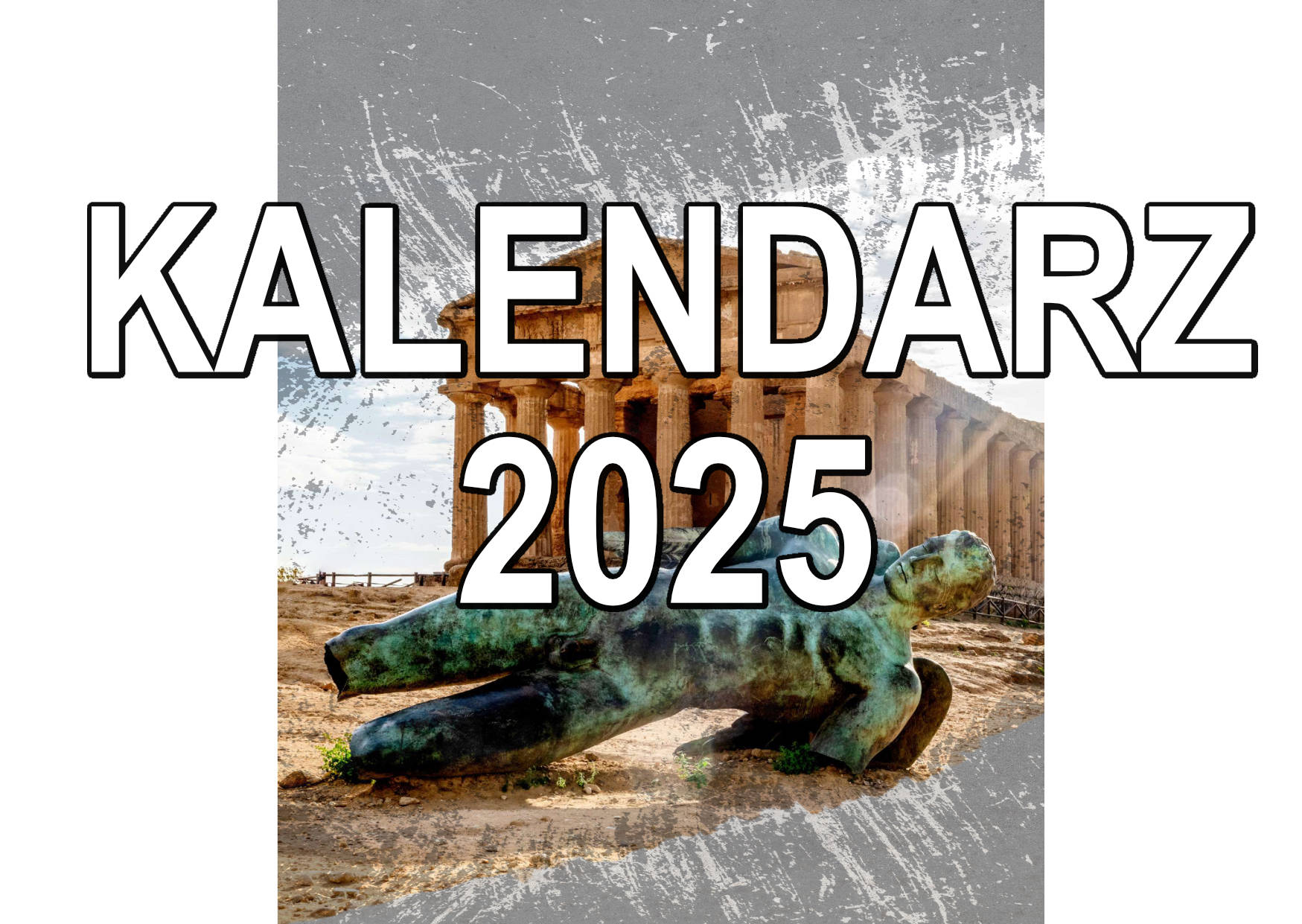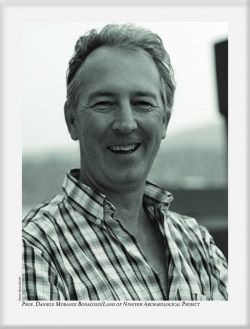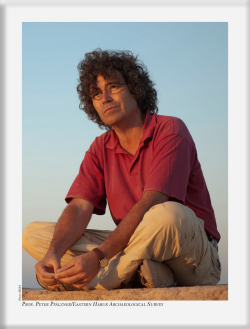Assyrian Landscapes Research Group
HISTORY AND AIMS
Assyrian Landscapes Research Group is an informal cooperation initiative founded by Jason Ur, Daniele Morandi Bonacossi and Rafał Koliński in 2012, and joined by Peter Pfälzner in 2013. Its aim it to carry out the field research according to similar methodology and to provide a platform for rapid exchange of results and ideas between cooperating projects.

ALRG WORKING MEETINGS
The first meeting of the group took place in Udine, in March 2013, and was attended by Jason Ur and Rafał Koliński. The main reason of this meeting was presentation and comparison of the results of initial field season of each project.
In the following years, no working meeting took place, partly due to logistic reasons (meeting in Europe) and partly due to temporal suspension of fieldwork by some of the projects as a result of IS inclusion (meeting in Kurdistan).
During the 10th ICAANE in Vienna in 2016, attended by all the directors of ARLG directors the idea of the working group meeting was refreshed. As a result, the meeting, organized by the UGZAR project, was scheduled to May 2017.
It will be held in Poznań at the Faculty of History building (Collegium Historicum Novum), at the Morasko Campus.
ASSYRIAN LANDSCAPES RESEARCH GROUP PROJECTS
"Land of Nineveh Archaeological Project" (LoNAP)is a wide-ranging multidisciplinary research project aiming to study the archaeological landscape of the region of Dohuk (Iraqi Kurdistan) and record, conserve and promote the incredible cultural heritage of the region constituting the immediate hinterland of Nineveh, the ancient capital of the Assyrian Empire.
Daniele Morandi Bonacossi
Professor of Near Eastern Archaeology, Dipartamento di studii Umanistici e del Patrimonio Culturale, Università degli Studi di Udine, director of Land of Nineveh Archaeological Project
Web-site http://www.terradininive.com/
Erbil Plain Archaeological Survey (EPAS) maps archaeological sites and landscape features over the past 10,000 years. Its geographical focus is the plain around the city of Erbil, the capital of Erbil governorate and of the Kurdistan Region of Iraq. The project was initiated in 2012.
Jason Ur
Professor of Anthropology, Department of Anthropology, Harvard University, director of the Harvard University Center for Geographic Analysis, director of Erbil Plain Archaeological Survey.
Web site http://scholar.harvard.edu/jasonur/pages/erbil
Facebook https://www.facebook.com/ErbilPlainArchaeologicalSurvey
"Eastern Habur Archaeological Survey" (EHAS) is a part of a new research initiative aiming at explaining the interests of the Mesopotamian lowland states in the foothills and mountainous areas of the Zagros. The project, initiated in 2013, is carried out in the northernmost part of Iraqi Kurdistan, around Zaxo and Amadi townships.
Peter Pfälzner
Professor of Near Eastern Archaeology, Institut für die Kulturen des Alten Orients, Eberhard Karls Universität Tübingen, Germany, director of Eastern Habur Archaeological Survey.
Upper Greater Zab Archaeological Reconnaissance (UGZAR) project is aiming at the study of the history of settlement along the Greater Zab river, between Eski Kelek/Xabat and Akrê-Harĩr mountains. The field activities of the project, started in 2012, will be terminated with the sixth field campaign to be conducted later this year.
Rafał Koliński
Professor of Near Eastern Archaeology, Institute of Archaeology, Adam Mickiewicz University of Poznań, director of Upper Greater Zab Archaeological Reconnaissance
Web site http://archeo.amu.edu.pl/ugzar/indexen.htm
Facebook https://www.facebook.com/UGZAR-Upper-Greater-Zab-Archaeological-Reconnaissance-108602636000466




